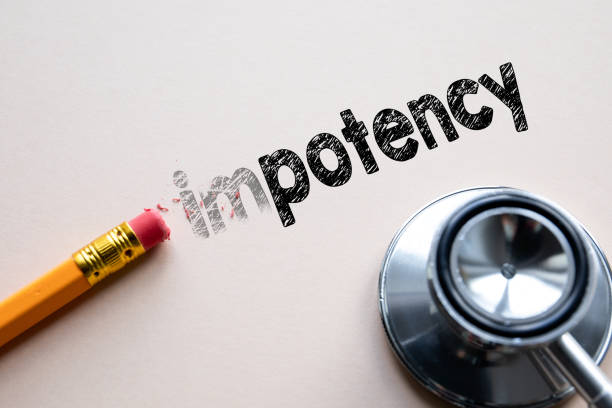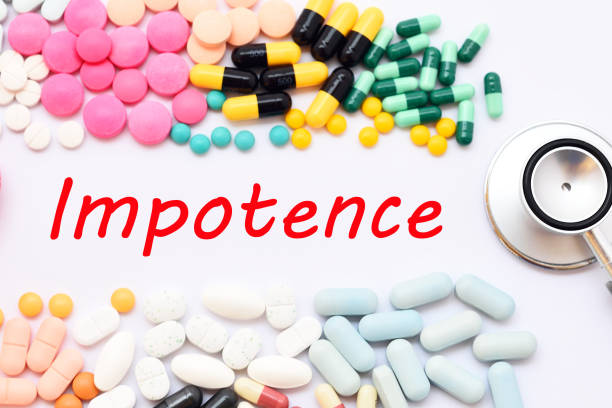Erectile dysfunction (ED), commonly referred to as impotence, is a widespread condition affecting millions of men worldwide. This condition is defined by the consistent inability to achieve or maintain an erection firm enough for sexual activity. While occasional difficulties with erections are normal, persistent ED may indicate underlying health concerns such as heart disease, diabetes, or hormonal imbalances.
Factors like stress, anxiety, and lifestyle choices can also contribute to erectile dysfunction. Recognizing the symptoms, understanding the root causes, and exploring available treatment options—ranging from lifestyle changes and medications to therapy—can help men take control of their sexual health and overall well-being.
What Causes Impotence?
Impotence, or erectile dysfunction (ED), can stem from a combination of physical, psychological, and lifestyle factors. Identifying the root cause is essential for effective treatment and long-term improvement in sexual health. Below are some of the most common contributors to ED:
1. Physical Causes
Many medical conditions can impair blood flow, nerve function, or hormone levels, leading to erectile dysfunction. Common physical causes include:
- Cardiovascular Diseases: High blood pressure, atherosclerosis (clogged arteries), and heart disease can restrict blood flow to the penis, making it difficult to achieve an erection.
- Diabetes: Elevated blood sugar levels can damage blood vessels and nerves, increasing the risk of ED.
- Obesity: Excess weight can lead to hormonal imbalances, reduced circulation, and a higher likelihood of erectile dysfunction.
- Hormonal Imbalances: Low testosterone levels, thyroid disorders, and other hormonal disruptions can negatively impact sexual function.
- Neurological Disorders: Conditions like Parkinson’s disease, multiple sclerosis, and spinal cord injuries can interfere with nerve signals that control erections.
- Medications: Certain prescription drugs, including antidepressants, blood pressure medications, and prostate treatments, may list ED as a side effect.
2. Psychological Causes
Mental health plays a crucial role in sexual function. Anxiety, depression, and chronic stress can lower libido and make it difficult to achieve or maintain an erection. Additionally, past experiences with sexual performance issues can create a cycle of anxiety that worsens ED over time.
3. Lifestyle Factors
Unhealthy habits can significantly contribute to impotence. Key lifestyle factors include:
- Smoking: Damages blood vessels and reduces blood flow, increasing the risk of ED.
- Excessive Alcohol Consumption: Can interfere with testosterone production and nerve function.
- Lack of Exercise: Regular physical activity promotes better circulation, hormone balance, and overall health.
- Poor Diet: A diet high in processed foods, sugar, and unhealthy fats can lead to obesity, diabetes, and heart disease—conditions linked to erectile dysfunction.
By identifying and addressing these underlying causes, men can take proactive steps toward improving their sexual health and overall well-being.
Symptoms of Impotence

Impotence, or erectile dysfunction (ED), is primarily characterized by difficulty achieving or maintaining an erection. However, other symptoms can indicate underlying issues affecting sexual health. Recognizing these signs early can help men seek appropriate treatment. Common symptoms of impotence include:
- Reduced Sexual Desire (Low Libido): A noticeable decrease in interest or enthusiasm for sexual activity.
- Inconsistent Erections: Difficulty achieving an erection or erections that vary in firmness and duration.
- Erection Loss During Intercourse: The inability to sustain an erection long enough for satisfying sexual activity.
- Delayed or Absent Erections: Trouble getting an erection even with sexual stimulation.
If these symptoms persist for three months or longer, it may indicate an underlying health condition, such as cardiovascular disease, diabetes, or hormonal imbalances. Consulting a healthcare professional is essential to determine the cause and explore effective treatment options.
Treatment Options for Impotence
The good news is that erectile dysfunction (ED), or impotence, is treatable. The right treatment depends on the underlying cause, and many men can restore their sexual function through lifestyle changes, medications, or medical interventions. Below are the most effective treatment options:
1. Lifestyle Changes
Adopting a healthier lifestyle can significantly improve erectile function and overall well-being. Consider these key changes:
- Exercise Regularly: Activities like walking, jogging, and strength training improve circulation and heart health, reducing ED risk.
- Eat a Balanced Diet: Focus on whole foods, lean proteins, fruits, vegetables, and heart-healthy fats to support optimal blood flow.
- Manage Stress: Meditation, deep breathing, yoga, and therapy can help reduce stress-related ED.
- Quit Smoking: Smoking damages blood vessels and restricts blood flow, contributing to erectile dysfunction. Quitting can improve circulation and overall vascular health.
- Limit Alcohol Intake: Excessive alcohol consumption can interfere with hormone levels and nerve function, making ED worse. Reducing intake may enhance performance.
2. Medications
Several prescription medications help treat ED by increasing blood flow to the penis. Common options include:
- Sildenafil (Viagra)
- Tadalafil (Cialis)
- Vardenafil (Levitra)
- Avanafil (Stendra)
These medications should be taken under a doctor’s supervision, as they may interact with other drugs or cause side effects such as headaches, dizziness, or nasal congestion.
3. Therapy and Counseling

For men experiencing ED due to psychological factors such as stress, anxiety, or relationship issues, therapy can be highly beneficial. Effective approaches include:
- Cognitive-Behavioral Therapy (CBT): Helps identify and manage anxiety or negative thought patterns affecting performance.
- Couples Therapy: Strengthens communication and intimacy in relationships.
- Sex Therapy: Addresses sexual confidence and performance-related anxiety.
4. Medical Treatments
For men who do not respond to lifestyle changes or medications, additional medical interventions are available:
- Vacuum Pumps: Devices that create suction to draw blood into the penis, helping achieve an erection.
- Penile Injections: Medications injected directly into the penis to stimulate an erection.
- Surgical Implants: A last-resort option, penile implants provide a permanent solution for severe ED cases.
By exploring these treatment options, men can take proactive steps to overcome impotence, improve their confidence, and enhance their quality of life. Consulting a healthcare professional is the best way to determine the most effective approach based on individual needs.

Final Thoughts
Erectile dysfunction (ED), or impotence, is a common yet treatable condition that affects many men. By identifying and addressing underlying health concerns, adopting healthier lifestyle habits, and exploring effective medical treatments, men can take proactive steps toward restoring their sexual health and confidence.
Regular exercise, a balanced diet, stress management, and open communication with a partner can also play a crucial role in improving erectile function. If you or someone you know is struggling with ED, consulting a healthcare professional is essential for finding the right treatment plan and reclaiming a fulfilling sex life.

